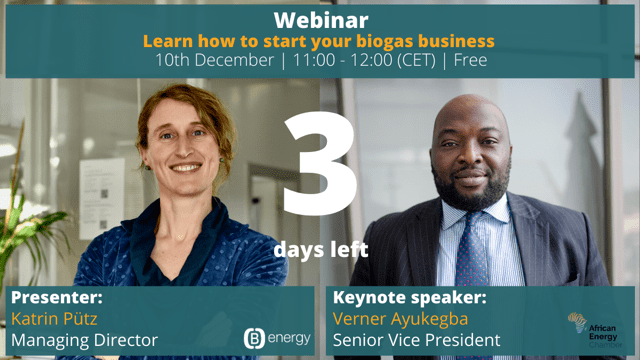
Webinar on Aid Free Biogas to Empower African Entrepreneurs
The combination of a small biogas digester bag, several biogas backpacks and biogas stoves replaces firewood and charcoal for cooking. Not only the technology, but rather the approach of (B) energy proves that a smart business model implemented by local entrepreneurs is much more effective than aid projects funded by Western donors.
Cooking in Africa is expensive! But it is not the food, but rather the energy for cooking that has become a major household expense, especially in rural areas. Biogas can replace firewood and charcoal, especially in Africa where the conditions for biogas production are perfect: warm climate, availability of organic material and a yet to be developed energy infrastructure, which is, once in place, very difficult to change.
Biogas, a flammable gas produced from animal manure, kitchen waste or any organic waste, is probably the cleanest and most sustainable cooking energy with additional benefits. A biogas digester also produces a valuable organic fertilizer that can be used directly in the garden or composted.
However, biogas has not taken off in Africa, why? One major reason can be found in the approach: the technology has been introduced mainly by aid organizations through donor funded programs and projects – without including a functioning business model. Katrin Puetz, founder and managing director of (B) energy realized this more than 10 years ago.
Based on this she developed (B) energy’s mobile biogas technology in combination with a flexible business model.
(B) energy’s business model reflects the understanding of development aid as a system error that needs to be stopped. Katrin and her partners work towards creating a large-scale example of how to solve problems 100% free of aid, which requires a smart and honest business model that is based on collaboration and independence.
.

